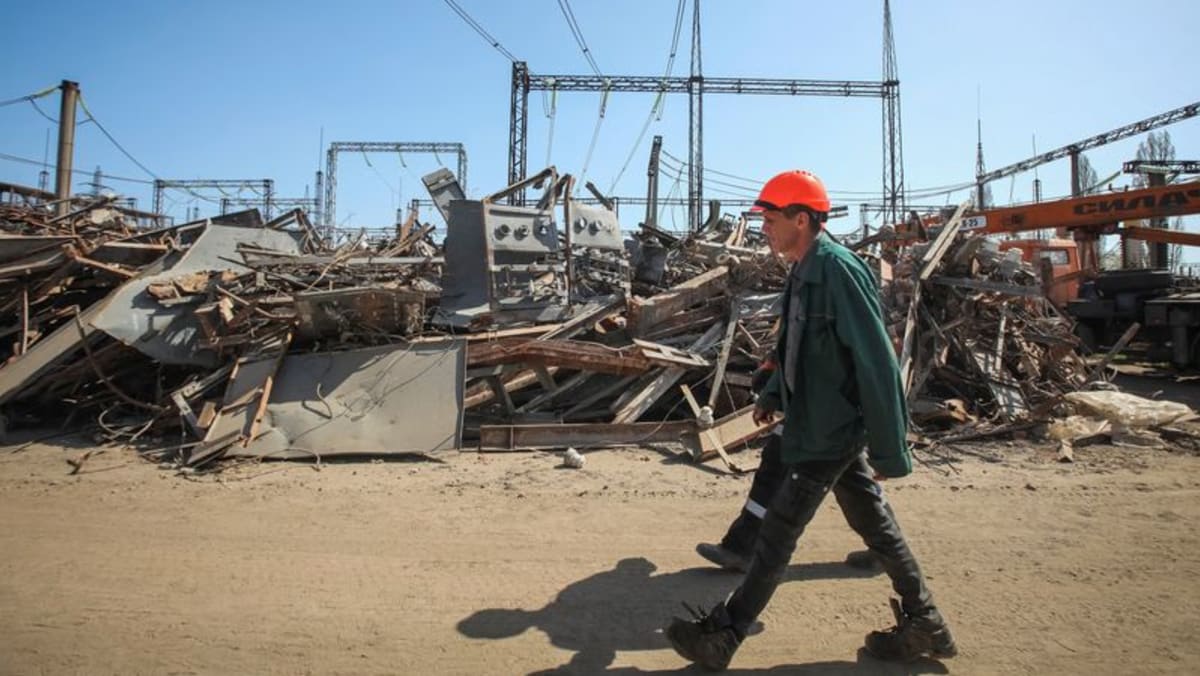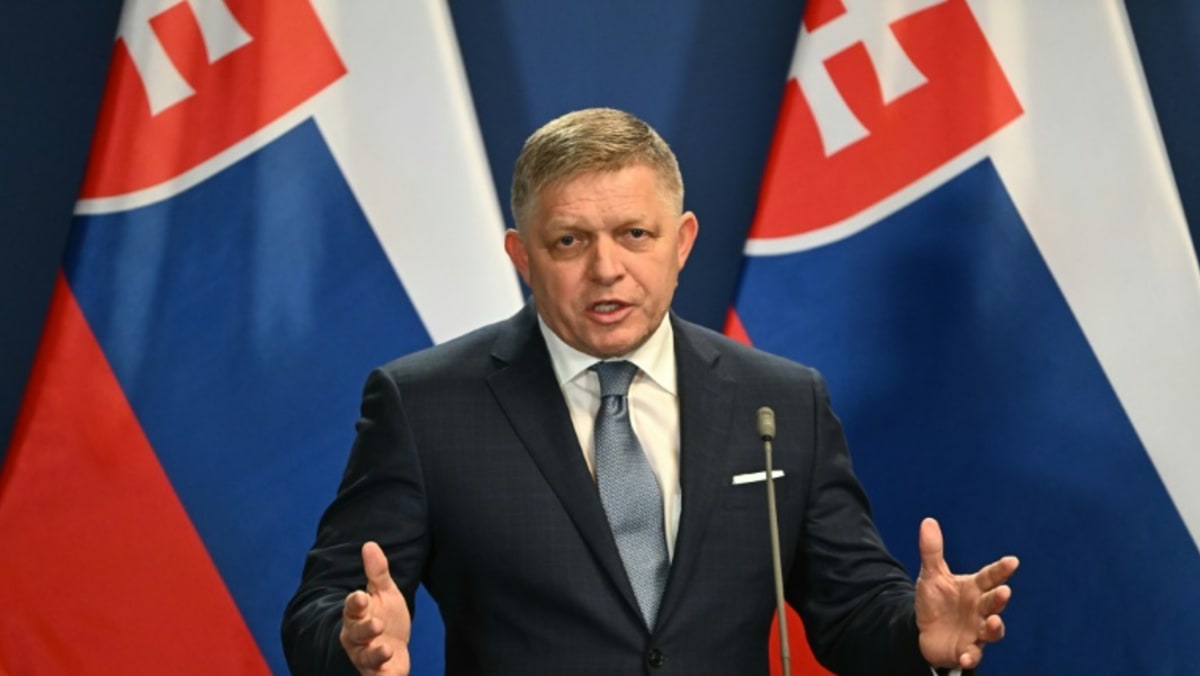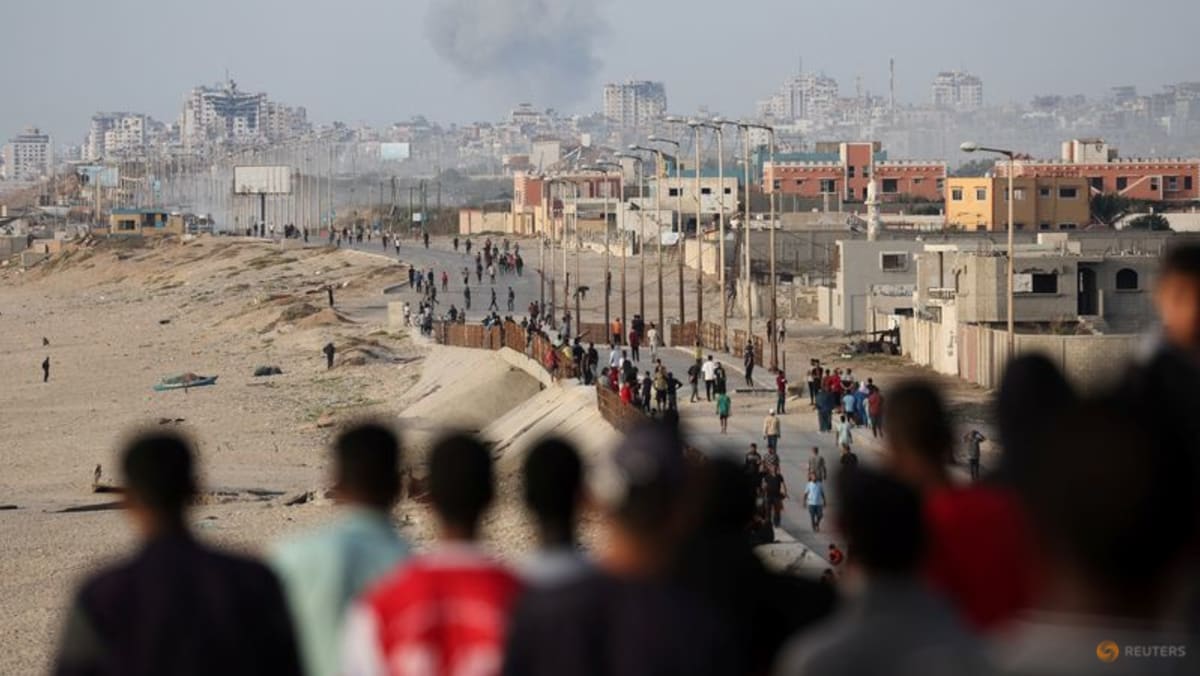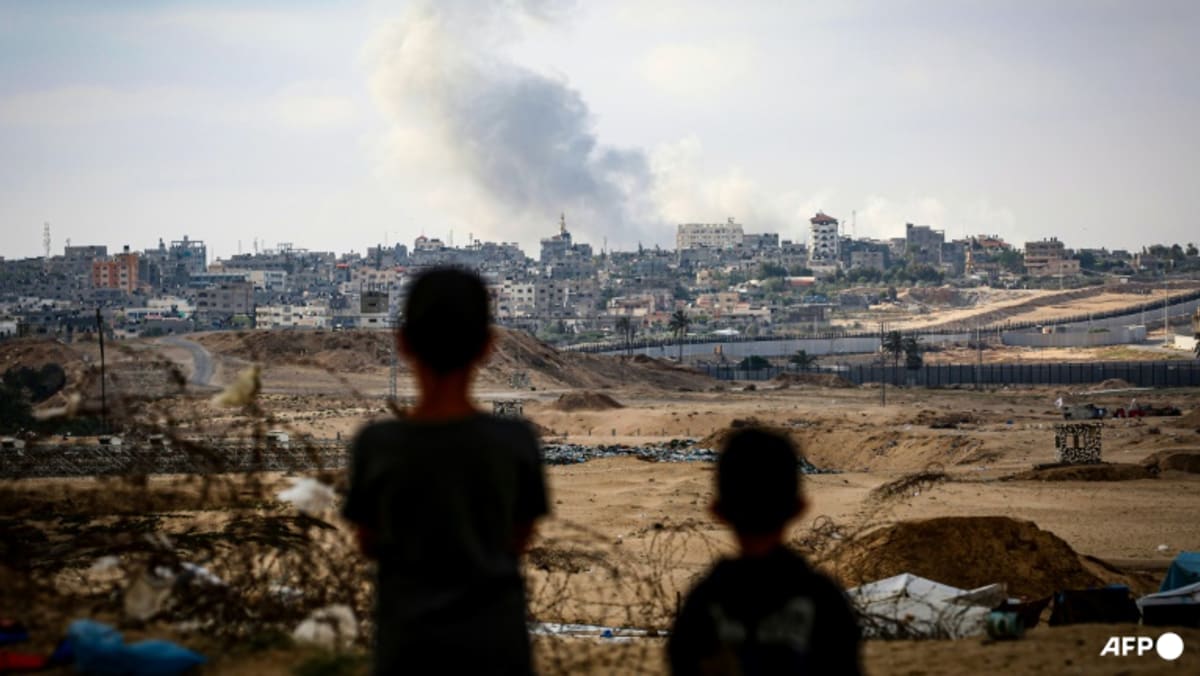MOSCOW: Russia’s migrants and migration policy are in the spotlight more than a month after a deadly attack near Moscow.
On Mar 22, a Russian band was preparing to perform a sold-out concert at the Crocus City Hall – a sprawling shopping and entertainment venue on the outskirts of Moscow – when gunmen entered the hall and opened fire.
More than 500 people were injured and 145 killed in the attack claimed by the Islamic State. Following the arrest of suspects from Tajikistan, Tajikistan’s foreign ministry said hundreds of its citizens have been denied entry into Russia.
Currently, citizens of ex-Soviet Central Asian countries – Kazakhstan, Uzbekistan, Tajikistan, Kyrgyzstan, and Turkmenistan – can enter Russia visa-free to look for work. The resource-rich Muslim-majority region has a population of about 75 million.
SCRUTINY ON MIGRANTS FOLLOWING ATTACK
Those from the region make up a majority of about 10 million migrant workers in Russia who are often in jobs in construction, transport and city maintenance.
They help fill a shortage caused by a low birthrate, economic instability and more recently, citizens leaving Russia fearing conscription following Moscow's so-called special military operation in Ukraine.
But since the terror attack, there has been increased scrutiny of Central Asian migrant workers.
“There were a lot of document checks previously, and they were also checking documents on the streets. But right now they’re checking migrants’ documents (more),” said Kyrgyzstan migrant worker Timurlan.
Human rights lawyers have reported an uptick in arbitrary deportations of foreign workers in Russia. There have also been raids on residences where many migrants live.
Tajikistan recently reported a surge in its citizens leaving Russia, while Kyrgyzstan has urged its nationals not to travel to Russia unless absolutely necessary.
 Clergymen conduct a memorial service for victims at a makeshift memorial near the Crocus City Hall following a deadly attack on the concert venue outside Moscow, Russia, March 29, 2024. REUTERS/Evgenia Novozhenina
Clergymen conduct a memorial service for victims at a makeshift memorial near the Crocus City Hall following a deadly attack on the concert venue outside Moscow, Russia, March 29, 2024. REUTERS/Evgenia Novozhenina
RUSSIA COULD TIGHTEN MIGRATION LAWS
The attack at Crocus City Hall has also prompted a debate on Russia's migration policies.
Russian President Vladimir Putin ordered the Interior Ministry and the Prosecutor General's Office to develop additional measures surrounding migrants. Among them is a proposal to reduce the length of time that migrants can stay in Russia without a job.
The Interior Ministry also wants all foreigners to be photographed and have their fingerprints recorded when entering Russia. This comes amid lawmakers’ warnings that foreign intelligence could use migrant workers to infiltrate the country.
Even as the country makes efforts to tighten its laws, some citizens appear to be less concerned.
"Of course, I noticed tension among the people, among most of my acquaintances. But I am of the opinion that there are no bad nations or religions. I have a Muslim father, but I am myself an Orthodox and I respect religion, whatever it is,” said one Moscow resident.
MIGRATION POLICY NEEDS CHANGES
Analysts said Russia's migration policy needs to be tweaked to prevent migrants from staying illegally.
Some suggested that the Interior Ministry, which is responsible for drafting and implementing government policy and legal regulation in the area of internal affairs, should not be charged with managing the process alone.
"The department is not the right one. Migration is a process and a phenomenon, it's several issues in one. And it should be treated from all aspects,” said Mr Vyacheslav Postavnin, head of the Center for Analytical and Practical Studies of Migration Processes and former deputy director of Russia’s Federal Migration Service.
“These include demography, the labour market, humanitarian issues, adaptation and integration, psychology and everything – police functions and security are also important. But police functions are not the main part of migration policy.”
Lawmakers have been calling for an update to Russia’s migration policy for years. However, with Russia facing a labour shortage, it cannot afford to alienate its migrant workforce.
If the proposed changes deter migrants from seeking jobs in Russia, the country could face a new problem – where to find the manpower it desperately needs.












 English (US) ·
English (US) ·  Turkish (TR) ·
Turkish (TR) ·